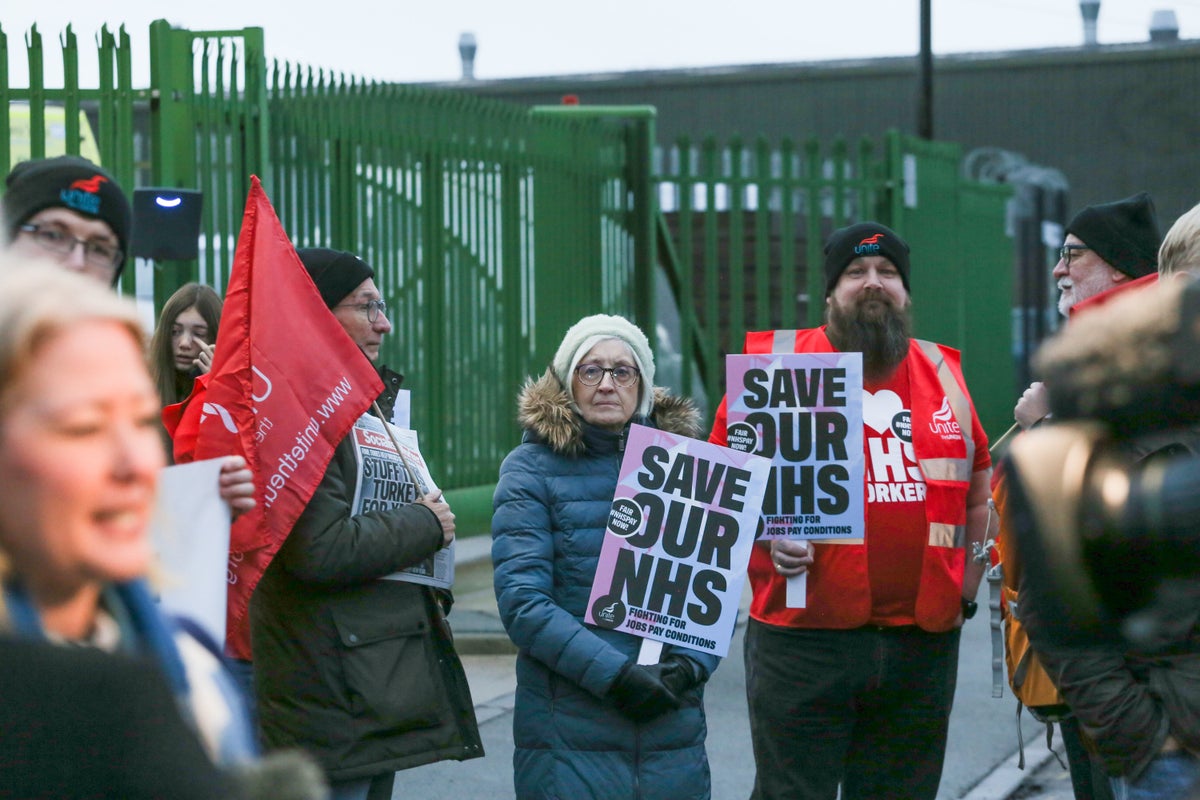
Striking ambulances workers have warned the service is at “breaking point”, as thousands of workers walk out across the country.
On Wednesday staff shared their fears about the future of the emergency service as patients face record waiting times.
In Coventry, paramedics and union leaders accused the government of “criminal negligence”, saying their action was the consequence of the Tories “hollowing out” the NHS. More than 1,600 workers at the West Midlands, North West and North East ambulance service trusts are on a 24-hour stoppage.
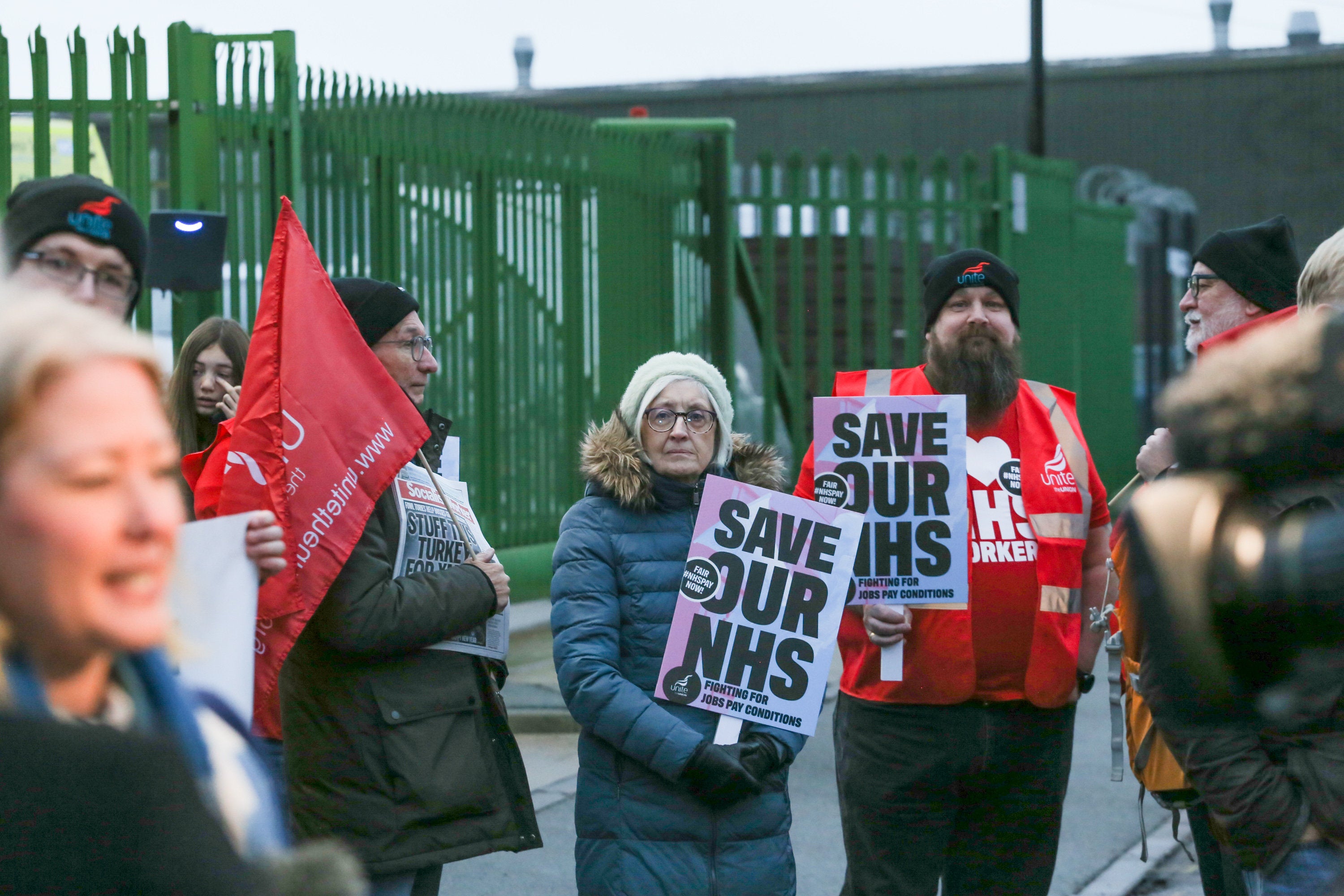
Jenny Withall, a 32-year-old paramedic, joined colleagues for two hours outside Coventry Ambulance Headquarters before returning to work when a 999 call came through.
“I am striking to try and sort the NHS out and help people out there struggling that we are just not getting to because of the working conditions,” she said.
“We are holding at hospitals for hours and hours with patients that should be inside getting the treatment they deserve, but it is just a backlog,” she continued. “The NHS is at breaking point and I don’t know how it is going to get better.
“The pay rise would help sort these problems but it is not so much the pay for me, it’s trying to sort out the NHS.
“If we did achieve our goals it would benefit everyone.”
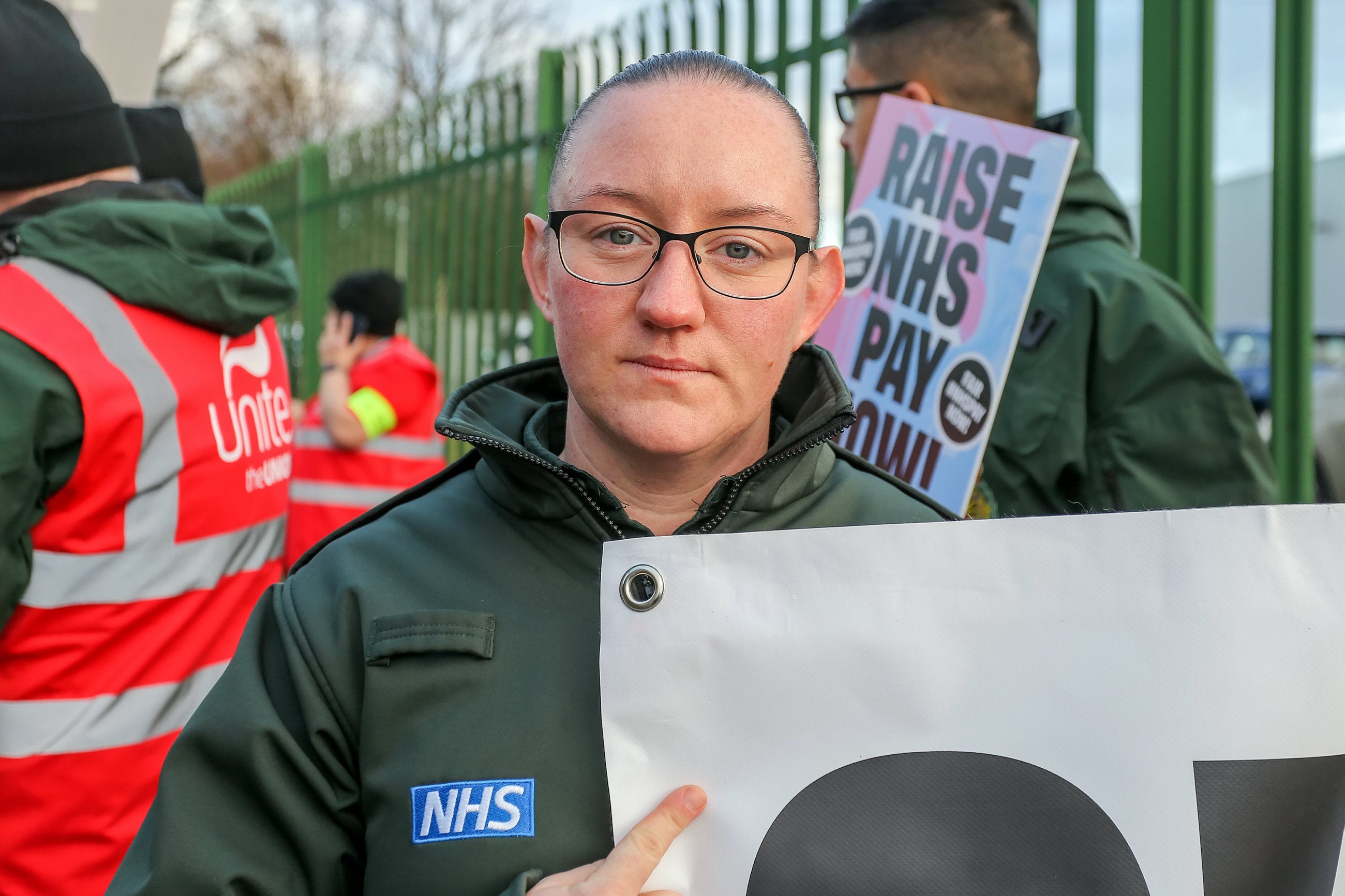
Ambulance technician Mike Smith, 51, has worked for the West Midlands Ambulance Service for 13 years and earns £40,000-a-year.
He also returned to work to help a category one emergency during the protest but stressed the strikes would ultimately benefit patients.
“There are patients out there waiting for an ambulance to turn up for hours and we’re stuck at hospitals and can’t get out to them,” he said.
“The hospitals are bed blocked because they can’t get their elderly patients out because there is not enough care home and care staff.
“If we were able to achieve our goals it would mean everything for our patients.
“The NHS is practically at a breaking point and someone out there is not looking at it properly. No one should have to wait 12 hours for treatment.”
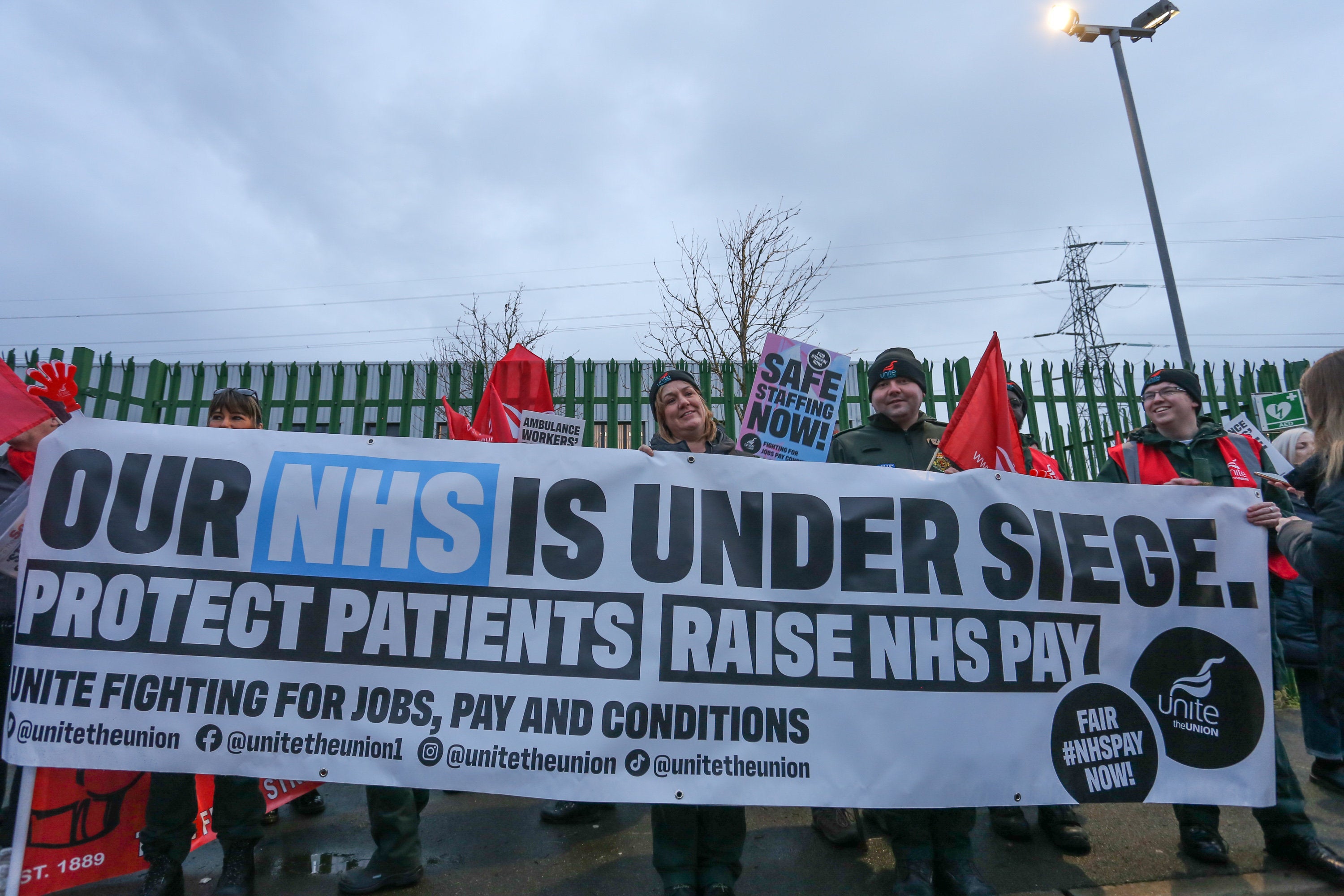
Student paramedic Thomas Moore, 22, earns £19,000-a-year before he qualifies to become a paramedic next year. He also crossed the picket line when a 999 call came in at around 9am.
“I am striking because the patients are being put at risk,” he said. “We need help and we are going to calls that are two or three days old and it is not good enough.
“We are always playing catch up and you feel rubbish when you can’t respond to the patients effectively and there is no standby time – so no time for training or to educate ourselves.
“You speak to some of the people that have worked in the services for 10 or 20 years and they remember being able to get to patients effectively and we just can’t do that.”
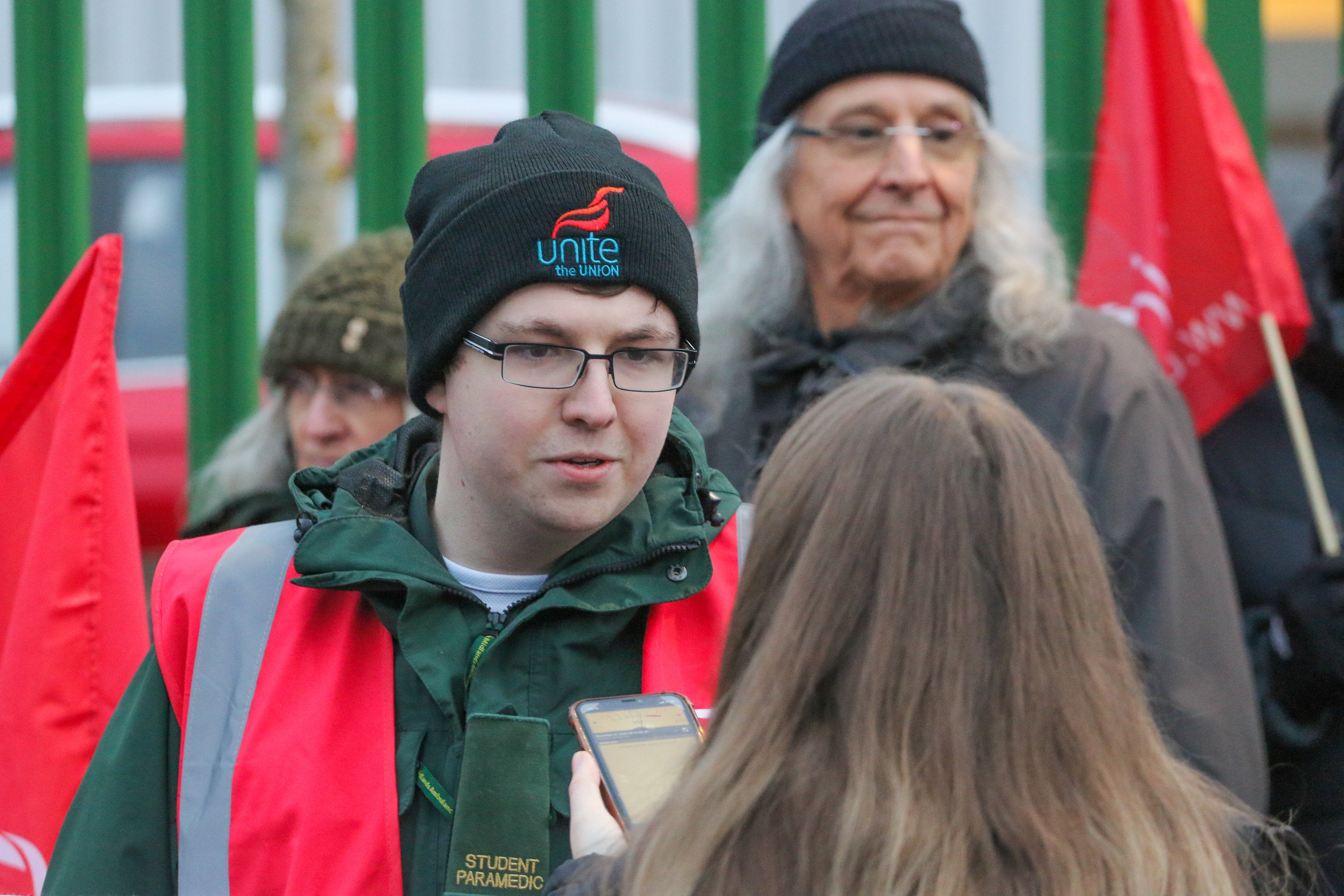
Ryan Carruthers, 23, said he earns £24,000-a-year after joining West Midlands Ambulance Service in April.
He said: “We work 12-hour shifts and work two days, two nights and then have four days off. The days are very busy and we see so many patients.
“It’s a lot of stress and we get many people angry with us when we don’t show up on time but it’s not our fault.
“We have to wait so long in long queues at the hospitals to get our patients seen and it is not fair on them.
“We want to get our patients seen quicker. Lots of people are leaving the services because of the working conditions.
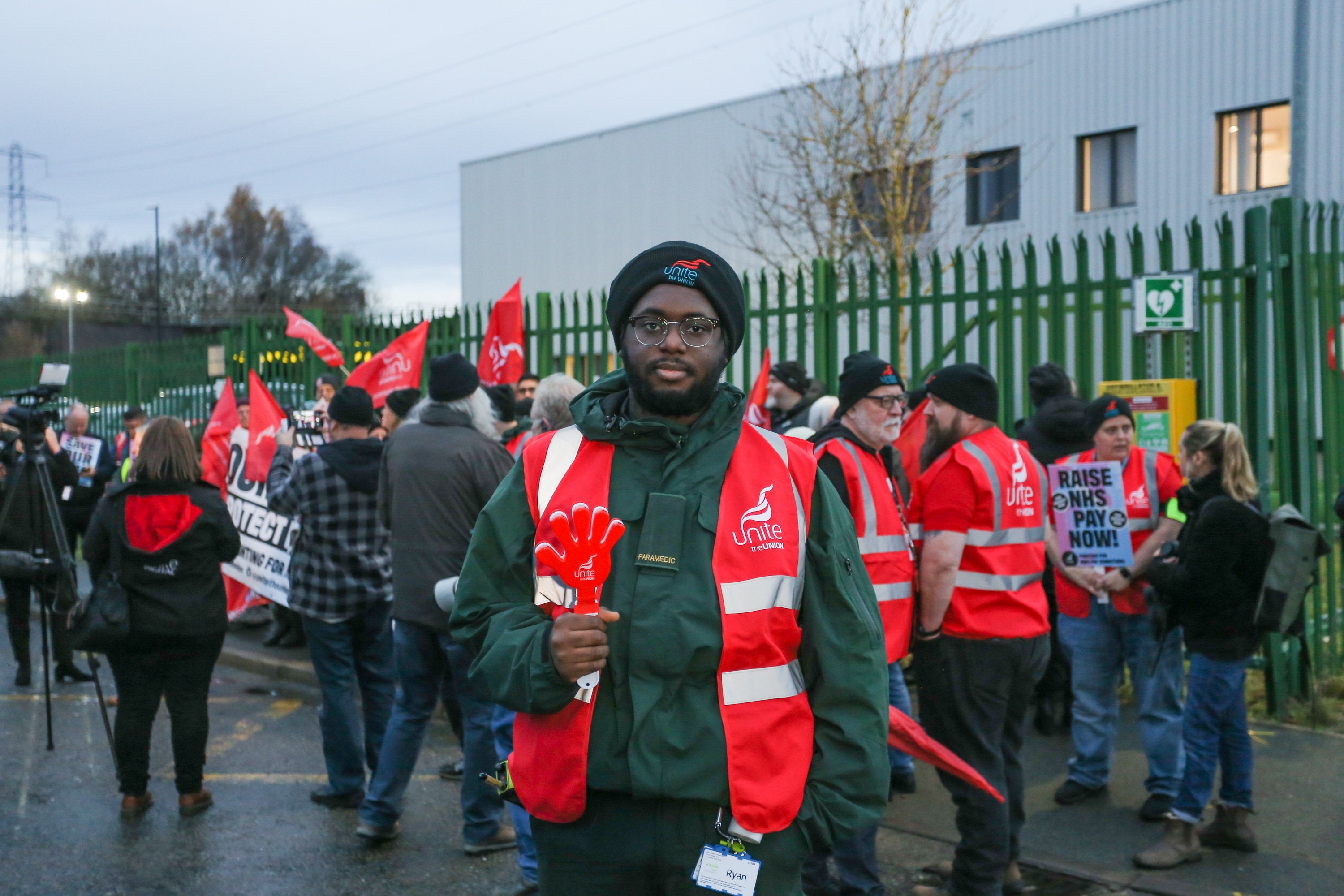
“The longest I’ve had to wait on the back of the ambulance getting a patient into hospital is eight hours but I know some of my crew have spent whole shifts just waiting in queues for their patients to be seen.”
Health secretary Steve Barclay was accused of “holding the country to ransom” by Unite leader Sharon Graham, who joined the striking workers.
“This government is guilty of criminal negligence in its hollowing out of the NHS long before now,” she said. “The strikers are actually trying to save the service. The government has had months to intervene and end this dispute.
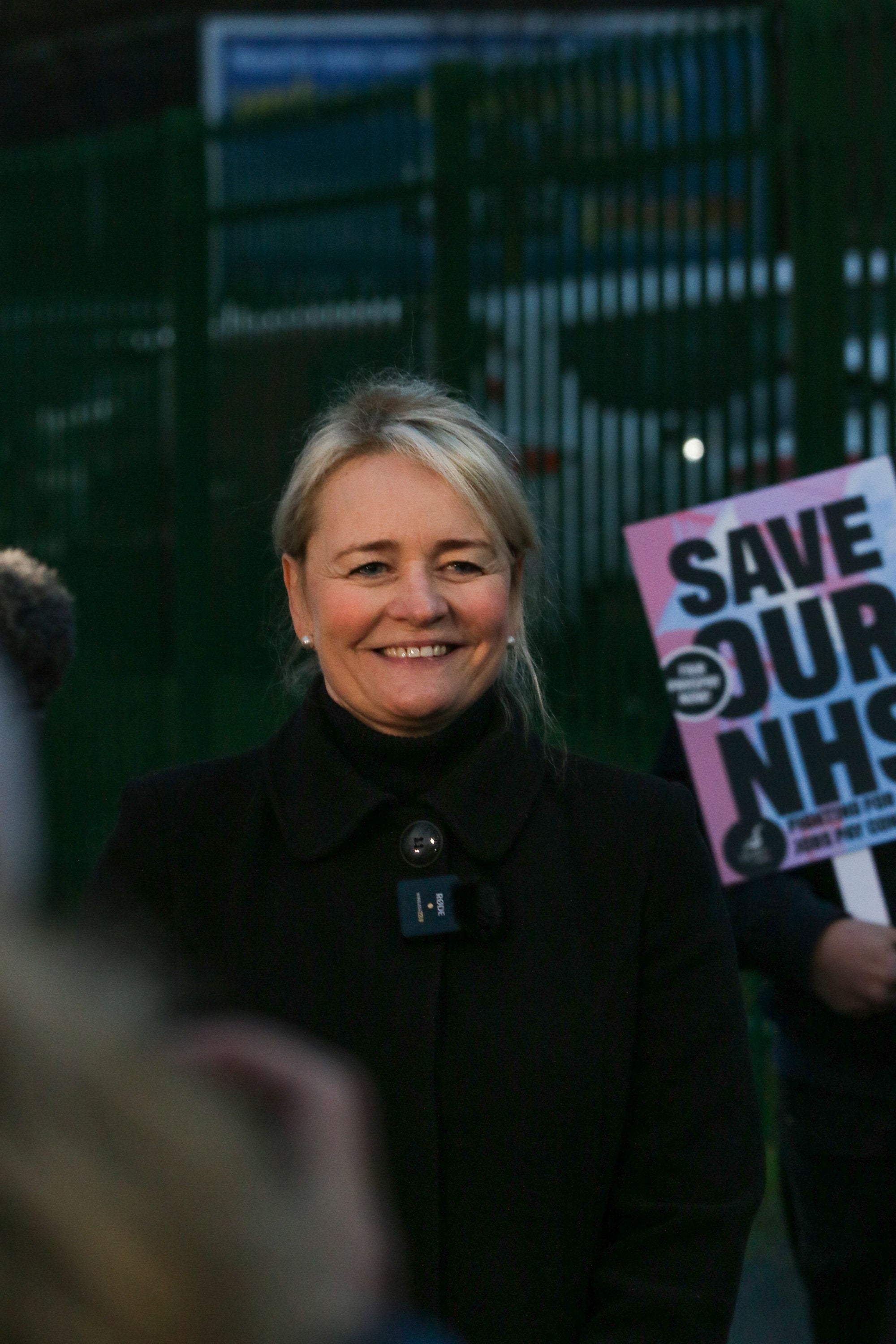
“They chose not to. It’s Steven Barclay who is holding the country to ransom, not the unions. He will have to carry the can if patients suffer.
“The shocking statistics from West Midlands Ambulance Trust tell the real story.
“Where were the government’s ‘well-rehearsed contingency plans’ when people were dying in the West Midlands because the crisis in the ambulance service meant an ambulance couldn’t get to them on time?”







